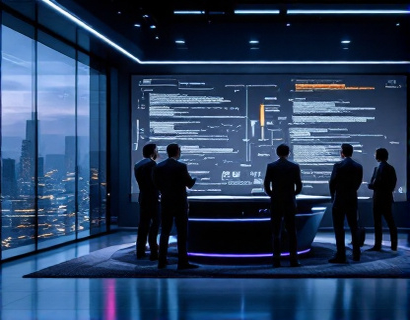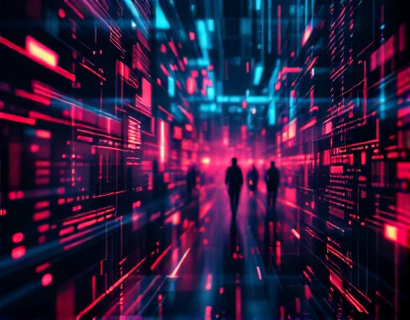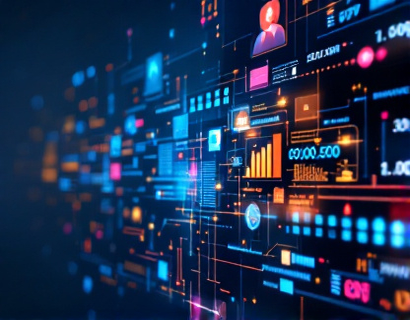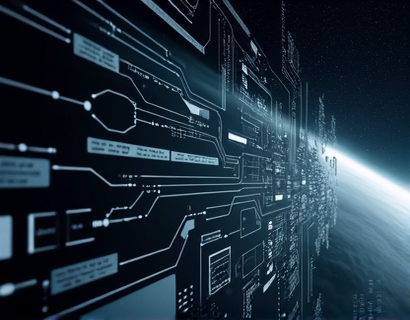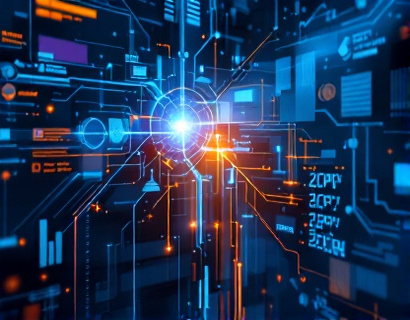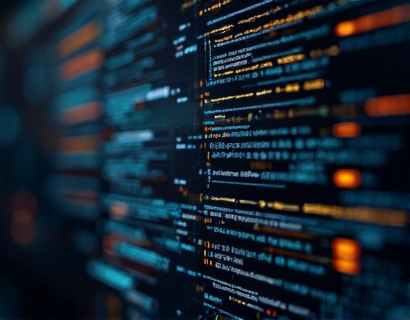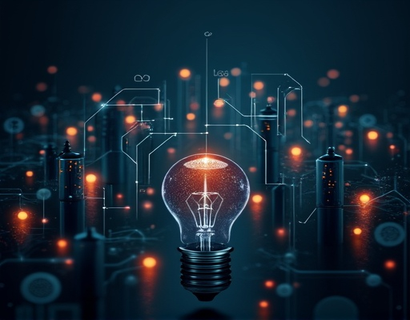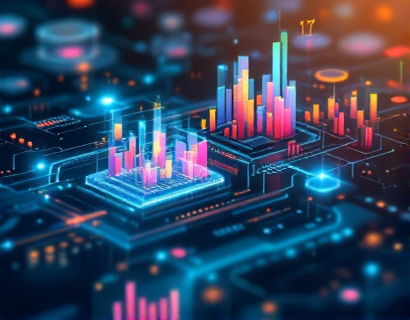Next-Gen Ucosystem Innovations: Transforming Applications with AI and Crypto Synergy
The intersection of cryptocurrency and artificial intelligence is giving birth to a new era of technological advancements, redefining how we interact with digital applications and services. This fusion, often referred to as techfusion, is not just a trend but a transformative force that is reshaping the landscape of technology. As we delve into the next generation of tech-driven applications, it's essential to understand how AI and crypto are synergizing to create more secure, efficient, and innovative solutions.
The foundation of this synergy lies in the unique properties of blockchain technology, which underpins cryptocurrency. Blockchain's decentralized, transparent, and immutable nature provides a robust framework for building trust and security in digital interactions. When combined with the computational power and learning capabilities of AI, the potential for innovation becomes immense. This article explores the various ways in which AI and crypto are coming together to revolutionize applications across different sectors.
Enhanced Security through Cryptographic Techniques
One of the most significant contributions of cryptocurrency to techfusion is the enhancement of security through cryptographic techniques. AI algorithms can be integrated with blockchain to create more sophisticated security protocols. For instance, machine learning models can analyze patterns and detect anomalies in real-time, identifying potential security threats before they materialize. This proactive approach to security is crucial in an era where cyber threats are becoming increasingly sophisticated.
Smart contracts, a cornerstone of blockchain technology, can be augmented with AI to automate complex decision-making processes while ensuring compliance with predefined rules. AI can help in drafting and executing smart contracts that adapt to changing conditions, reducing the risk of human error and increasing efficiency. This synergy not only enhances security but also streamlines operations, making processes more reliable and trustworthy.
Optimized Performance with AI-Driven Infrastructure
The performance of applications is another area where AI and crypto are making significant strides. Blockchain networks, while powerful, can be resource-intensive, leading to slower transaction times and higher costs. AI can optimize the performance of these networks by predicting and managing resource allocation more effectively. Machine learning algorithms can analyze network traffic and adjust parameters in real-time to ensure smooth and efficient operations.
Furthermore, AI can enhance the scalability of blockchain-based applications. By predicting user behavior and demand, AI can help in scaling resources dynamically, ensuring that the application remains responsive and fast, even during peak usage times. This not only improves user experience but also reduces operational costs, making the application more sustainable in the long run.
Personalized User Experiences through AI
AI's ability to process and analyze vast amounts of data makes it an ideal partner for creating personalized user experiences. In the context of blockchain and cryptocurrency, AI can be used to tailor applications to individual user preferences and behaviors. For example, a crypto trading platform can use AI to analyze a user's trading history and provide personalized recommendations, alerts, and insights. This level of personalization not only enhances user engagement but also increases the overall value of the application.
Moreover, AI-driven chatbots and virtual assistants can provide 24/7 support, answering user queries and guiding them through complex processes. These AI-powered tools can understand natural language, making interactions more intuitive and user-friendly. In a blockchain ecosystem, where transparency and user control are paramount, such personalized yet secure interactions are invaluable.
Decentralized Finance (DeFi) and AI Integration
Decentralized Finance (DeFi) is one of the most exciting frontiers where AI and crypto are converging. DeFi platforms aim to provide financial services without traditional intermediaries, leveraging blockchain technology. AI can significantly enhance the capabilities of DeFi by introducing more sophisticated risk management, fraud detection, and portfolio optimization tools. Machine learning models can analyze market trends and predict price movements, helping users make more informed investment decisions.
Automated market makers (AMMs) can be improved with AI to better match buyers and sellers, reducing slippage and improving liquidity. AI can also facilitate the creation of more complex financial instruments, such as decentralized derivatives and insurance products, by modeling intricate financial scenarios and assessing risks more accurately. This integration of AI in DeFi not only enhances functionality but also opens up new possibilities for financial innovation.
Supply Chain Transparency and Traceability
Supply chain management is another sector that stands to benefit greatly from the synergy of AI and crypto. Blockchain's transparency and immutability can be combined with AI to create more efficient and trustworthy supply chain systems. AI can analyze data from various points in the supply chain, identifying bottlenecks, predicting delays, and optimizing logistics. This real-time monitoring and analysis help in maintaining the integrity of the supply chain and ensuring product authenticity.
Crypto can play a crucial role in this ecosystem by providing a secure and transparent way to track transactions and payments. Smart contracts can automate payments based on predefined conditions, ensuring that all parties are compensated fairly and on time. This combination of AI and crypto not only improves efficiency but also builds trust among all stakeholders involved.
Healthcare Innovations with AI and Blockchain
The healthcare industry is another area where the fusion of AI and crypto is driving significant innovations. Patient data security and privacy are paramount, and blockchain provides a secure framework for storing and sharing medical records. AI can enhance this by analyzing large datasets to identify patterns, predict disease outbreaks, and personalize treatment plans. Machine learning algorithms can process medical images, diagnostic data, and patient histories to provide more accurate and timely medical insights.
Crypto can facilitate secure and seamless transactions for healthcare services, such as telemedicine and prescription management. Blockchain-based platforms can ensure that patient data is accessible only to authorized personnel, maintaining privacy and compliance with regulations. AI-driven tools can also help in managing healthcare resources more efficiently, reducing costs and improving patient care.
Gaming and Virtual Worlds
The gaming industry is witnessing a revolution with the integration of AI and crypto. Blockchain-based gaming platforms can offer true ownership of in-game assets through non-fungible tokens (NFTs). AI can enhance these platforms by creating more realistic and dynamic game environments, adaptive difficulty levels, and intelligent NPCs (non-player characters). Machine learning models can analyze player behavior to tailor game experiences, making them more engaging and personalized.
Crypto can also transform in-game economies by providing a decentralized and transparent system for trading assets. AI can optimize these economies by managing supply and demand, preventing inflation, and ensuring fair play. This synergy not only enhances the gaming experience but also opens up new revenue streams for developers and players alike.
Challenges and Considerations
While the potential of AI and crypto synergy is vast, there are several challenges that need to be addressed. Regulatory uncertainties remain a significant hurdle, as governments worldwide are still grappling with how to regulate these emerging technologies. Ensuring compliance while fostering innovation is a delicate balance that requires collaboration between stakeholders.
Technical challenges, such as scalability and interoperability, also need to be overcome. Blockchain networks must be able to handle high transaction volumes without compromising on speed and cost-effectiveness. AI models require robust and secure infrastructure to function effectively, especially when dealing with sensitive data.
Moreover, the ethical implications of AI, such as bias and transparency, must be carefully considered. Ensuring that AI algorithms are fair and unbiased is crucial, especially in applications like healthcare and finance where decisions can have significant impacts on people's lives.
Future Outlook
Looking ahead, the synergy between AI and crypto is poised to drive even more groundbreaking innovations. As technology continues to evolve, we can expect to see more sophisticated applications that leverage the strengths of both domains. The development of more advanced AI models, such as quantum AI, could further enhance the capabilities of blockchain-based systems.
Interoperability between different blockchain platforms and AI systems will become increasingly important, enabling seamless integration and collaboration. The rise of decentralized AI markets, where AI models can be bought, sold, and shared in a trustless environment, is another exciting possibility. This could democratize access to AI technologies, fostering a more inclusive and innovative ecosystem.
In conclusion, the fusion of AI and crypto is not just a technological trend but a transformative force that is redefining digital interactions and experiences. By enhancing security, optimizing performance, personalizing user experiences, and driving innovation in various sectors, this synergy is paving the way for a more secure, efficient, and inclusive future. As we continue to explore and harness the potential of this techfusion, the possibilities are endless.




